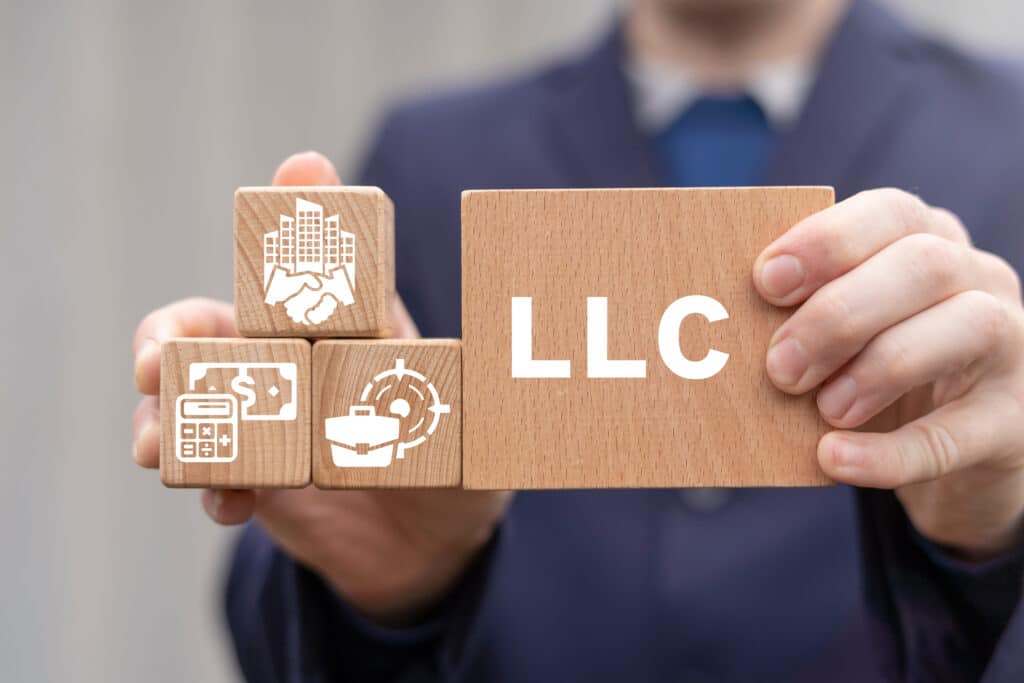5 Tax Advantages of an LLC: How It Can Save You Taxes

You’ve been thinking about starting a business. Maybe you’re freelancing, running an online shop, or offering consulting services. Whatever it is, you’re making money, and taxes are coming. Now you’re wondering if forming a limited liability company (LLC) could save you some money and headaches.
The good news is that it can.
An LLC not only protects your personal assets but also offers tax advantages that can benefit your business, whether you’re just starting or scaling up. But before you jump in, let’s break down exactly what those tax benefits are and how they work.
5 Tax Advantages of Forming an LLC
1. Pass-Through Taxation (No Double Tax)
If you set up an LLC, by default, you won’t pay corporate income tax. Instead, your business income “passes through” to your personal tax return. You’ll report your profits (or losses) on your personal Form 1040 and pay taxes at your individual rate.
This setup dodges the double taxation that C corporations face, where the company pays corporate taxes first, and then shareholders pay tax again on dividends.
2. Flexibility in How You’re Taxed
By default, the IRS taxes LLC as:
- Sole Proprietorship: If you’re the only owner, the IRS treats your LLC as a sole proprietorship. You’ll report all business income and expenses on your personal tax return using Schedule C. The IRS taxes the profits as part of your personal income, and you’ll also pay self-employment taxes.
- Partnership: If your LLC has multiple owners, the IRS will tax it as a partnership. Each member reports their share of the profits and losses on their personal tax returns. Like sole proprietors, members pay self-employment taxes on their earnings.
But you can also elect to be taxed as an S Corporation (S-Corp) or a C Corporation (C-Corp) if it benefits your business.
- S-Corp Election: It lets you avoid self-employment taxes on a portion of your income. Instead of paying Social Security and Medicare taxes on all profits, you can take a reasonable salary and receive the rest as distributions, which aren’t subject to self-employment tax. Many business owners choose S-Corp taxation once their profits reach around $75,000 to $100,000 a year to maximize their tax savings.
- C-Corp Election: This can be beneficial if you plan to reinvest profits back into the business and take advantage of corporate tax rates.
Choosing the right tax structure can mean big savings, especially as your business grows.
3. Business Expense Deductions
Running a business isn’t cheap. One major tax advantage of an LLC is the ability to write off business expenses, reducing your taxable income and, consequently, the amount you owe in taxes.
Some common deductions LLC owners can take include:
- Office supplies and equipment
- Advertising and marketing
- Professional fees (like accounting or legal services)
- Business travel
- Software subscriptions
- Even part of your home office, if you qualify
4. Estate Planning
An LLC can help you pass your business to your kids or grandkids without a massive tax hit. You can gradually shift ownership to them over time, cutting down on estate taxes when you’re gone. It’s a smart way to keep your legacy alive without Uncle Sam taking a big bite.
5. Protect Your Assets
While not a direct tax benefit, forming an LLC protects your personal assets from business debts and lawsuits. If your business encounters financial trouble, your personal savings, home, or car won’t be at risk.
Without an LLC, if someone sues your business, they could come after your personal assets. With an LLC, your liability is limited to what the business owns, not your personal bank account.
So, Is an LLC Right for You?
If you’re a freelancer, small business owner, or side hustler bringing in steady income, forming an LLC could be one of the smartest moves you can make. It keeps your personal assets safe, gives you flexibility in how you’re taxed, and lets you take advantage of deductions that can save you thousands.
An LLC isn’t for everyone. There are setup fees, yearly maintenance costs, and paperwork to deal with. If your business is just starting out and not making much profit yet, the costs might outweigh the benefits, at least for now. In such cases, operating as a sole proprietorship may be more practical due to its simplicity and lower costs.
On the other hand, if you’re aiming for big investors or rapid growth, a corporation might be a better fit.
Final Thoughts
Taxes might not be fun, but saving money? That’s always worth it.
If you’re thinking about forming an LLC or wondering if you should change your tax status, talk to a qualified tax professional. They can help you crunch the numbers and figure out the best setup for your business.
And if you’re tired of stressing over taxes, Tax Samaritan is here for you. Give us a call at 775-305-1040 for a free 30-minute consultation. We’ll take care of your taxes so you can focus on running your business.


